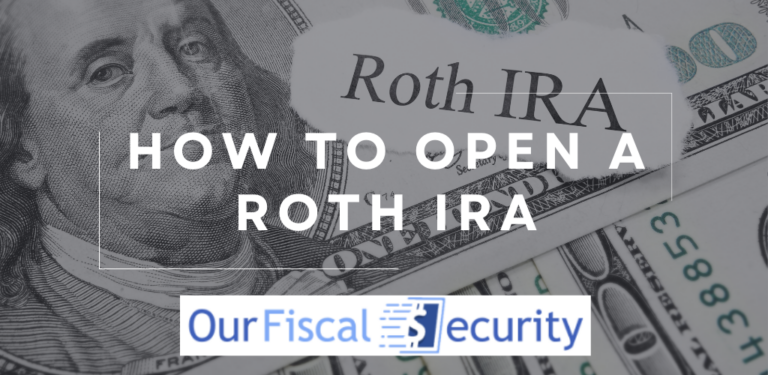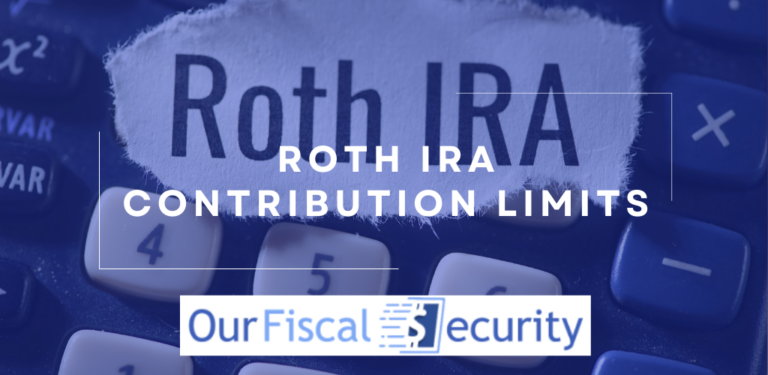Gold IRA Physical Possession
In the dynamic world of retirement planning, a gold IRA offers a unique fusion of security and potential growth. This type of Individual Retirement Account (IRA) allows investors to diversify their portfolios with physical gold and other precious metals, offering a tangible hedge against market volatility.
While traditional gold IRAs primarily deal with gold coins and bars, the concept of physical possession brings an additional layer of intrigue. It’s not just about holding assets in an account but about the possibility of physically owning your gold investments.
This option, offered by various gold IRA companies, offers the stability of gold investments and the reassurance of having tangible assets. In this article, you’ll learn everything you need about a gold IRA physical possession. Therefore, keep reading to learn more.
Understanding Gold IRA
By understanding a Gold IRA, you open up a realm where precious metals meet retirement planning. This unique investment avenue intertwines the solidity of physical gold with the traditional structure of retirement accounts.
Gold IRA: An Introduction
A gold IRA account stands out in the landscape of retirement options. Unlike conventional IRAs, this type allows you to include physical gold, such as coins and bars, in your retirement portfolio.
This type of self-directed IRA includes not only gold but also other precious metals, which offer a diversified investment approach. The appeal of gold IRA investments lies in their ability to provide a hedge against inflation and economic volatility.

The Appeal of a Gold IRA Investment
Investing in this type of IRA brings a blend of tax advantages and the intrinsic value of physical gold. The stability of gold, especially during market downturns, adds a layer of security to your retirement account. This makes precious metals IRAs a prudent choice for safeguarding long-term wealth.
Transitioning from a Traditional IRA to a Gold IRA
Moving from a traditional IRA to a gold account can be a strategic decision for those looking to fortify their retirement savings with the resilience of gold. Such a transition involves a careful shift of assets from paper-based investments to tangible precious metals.
Steps in Converting a Traditional IRA to a Gold IRA
Converting your traditional to a gold IRA typically involves choosing a reputable custodian who facilitates the transfer of assets. This process ensures that your investments comply with IRS regulations regarding gold IRA physical possession.
Reasons to Consider a Gold IRA Conversion
The decision to transition to a gold IRA is driven by the need to diversify investment portfolios and minimize risk. Moreover, the tangible nature of physical gold, combined with the tax-efficient structure, makes this option increasingly popular among investors looking to balance traditional investments with tangible assets such as gold bars and coins.
Gold IRA and Physical Possession
Exploring the relationship by comparing IRA investments with owning gold reveals a complex blend of legality, security, and investment strategy.
Legal Aspects of Gold IRA Physical Possession
The legal framework governing gold IRA physical possession is intricate. While this type of IRA allows for holding physical gold, IRS regulations require strict compliance.
These rules dictate the form of gold acceptable in these accounts – only certain gold coins, bars, and bullion meeting specific purity and fineness standards qualify. Also, the IRS mandates that these assets must be held by a qualified custodian, ensuring they are not directly accessible to the owner.
This arrangement maintains the tax benefits of the IRA while allowing for investment in physical gold. Violating these rules, especially regarding the physical possession of gold, can lead to significant tax penalties, making legal compliance a top priority for gold IRA account holders.
Home Storage Gold IRA: Feasibility and Risks
The concept of a home storage gold IRA, where individuals store assets at their house, is surrounded by legal ambiguity and risk. While the idea of having physical possession of gold in your personal space is appealing, the feasibility of home storage often collides with IRS guidelines.
Furthermore, the IRS has not recognized the legitimacy of this approach, citing concerns that it could violate rules around self-dealing and personal use.
Consequently, opting for a home storage gold IRA could expose investors to substantial tax penalties and cancel out the tax advantages of a traditional gold IRA. The risks and legal uncertainties involved make it a less advisable route for most investors.

Secure Storage Options for a Gold IRA
There are two ways you can store your physical gold. Let’s talk about these options in a bit more detail.
Professional Depository Services
Physical gold IRA assets must be stored in secure, IRS-approved depositories to comply with regulations. These depositories specialize in storing precious metals and providing high-security environments that protect against theft, loss, and damage.
Approved Precious Metals Storage Facilities
Approved precious metals storage facilities are designated by the IRS and offer a secure environment for gold assets. Moreover, these facilities adhere to stringent security standards and can store gold coins and bars to safeguard them from potential hazards.
The Crucial Role of Gold IRA Custodians
In the realm of gold IRAs, the selection and management of a custodian are pivotal for maintaining both compliance and the integrity of your investment.
Selecting the Best Custodian for a Gold IRA
Choosing the right custodian for your gold IRA account is a critical step in ensuring the successful management of your retirement assets. The custodian plays a crucial role in adhering to IRS guidelines for physical possession of gold and managing your IRA account effectively.
A reliable custodian offers expertise in precious metals IRAs, providing essential services such as purchasing gold on your behalf, storing it securely, and handling all related administrative tasks.
Factors to Consider When Choosing a Gold IRA Custodian
When choosing a custodian for your self-directed gold IRA, consider their reputation, experience in handling these types of accounts, storage facilities, and customer service.
Ensuring they offer IRS-approved storage options and a transparent fee structure is important. Also, the custodian should facilitate the buying and selling of gold and help with the transfer and rollover processes from other retirement accounts.
Decoding Gold IRA Custodial Fees
Understanding the structure of gold IRA fees is essential for effective financial planning before engaging with an IRA custodian.
Understanding Fee Structures in a Gold IRA
Custodial fees can vary significantly and may include charges for account setup, annual maintenance, storage, and insurance. Some custodians might charge a flat fee, while others base their fees on the value of your assets.
Knowing these fees upfront is important to avoid surprises and manage your retirement account effectively. Make sure to compare different custodians’ fee structures to find the best fit for your investment strategy, balancing cost with the quality of services offered.
The Rules of a Gold IRA Withdrawal
Navigating the complex rules of withdrawals is essential for any investor. Understanding the right time for physical possession, the implications of early withdrawal, and inheritance regulations is critical.
The Right Time to Take Physical Possession of Gold
Taking physical possession of gold from a self-directed gold IRA is often considered upon retirement. Investors typically decide to hold physical gold as a hedge against market volatility. It’s important to understand that gold IRA physical possession comes with specific regulations.
Adhering to these ensures maintaining the tax benefits associated with the retirement account. Typically, the age of 59½ is when you can take physical possession without penalties.
Early Withdrawal from a Gold IRA: Implications
Withdrawing from a gold IRA account before the age of 59½ leads to significant financial implications. Early withdrawal results in penalties and taxes, reducing the value of your investment. Investors must consider these consequences before deciding to access their accounts prematurely.

Understanding Tax Penalties on Early Gold IRA Withdrawals
Withdrawing early from these accounts is subject to a 10% penalty. Additionally, investors must pay taxes on the withdrawn amount, which could be substantial depending on the current value of the gold. It’s vital to weigh these costs against the need for early access to your retirement account.
Rules for Inheriting Gold IRAs
Inheriting a gold IRA follows rules similar to those of traditional individual retirement accounts. Beneficiaries must adhere to Required Minimum Distributions (RMDs) based on their life expectancy.
However, the unique aspect of owning physical gold in these accounts necessitates understanding specific storage and valuation rules.
Tax Implications for Inherited Gold IRAs
Beneficiaries of gold individual retirement accounts must consider tax implications. While they don’t pay taxes on inherited amounts, RMDs from these accounts are taxable. Knowing how to manage and store gold inherited from an IRA account helps maintain its value and comply with tax regulations.
Liquidating Your Gold IRA
Liquidating a gold individual retirement account is a big decision that requires careful consideration and understanding of the process involved.
Steps to Request a Gold IRA Distribution
The first step is contacting your custodian to start a distribution from your IRA account. You must complete a distribution request form specifying whether you want to liquidate your assets or take physical possession of the gold.
If you opt to hold physical gold, the custodian will guide you through transferring it to a location of your choice. Now, for liquidation, the custodian will sell the gold on your behalf, and the proceeds will be transferred to your designated bank account.
Before making this decision, it’s essential to be aware of the market conditions and the current value of owning physical gold.
Understanding Tax Exemptions on Gold IRA Distributions
Gold individual retirement account distributions are subject to the same tax rules as traditional IRAs. The amount you withdraw will be added to your taxable income for the year. Understanding these tax implications is crucial before proceeding with a distribution.
Conditions for Tax-free Gold IRA Distributions
Tax-free distributions from gold individual retirement accounts are limited and usually only available under certain conditions. These include reaching the age of 59½, qualifying for a first-time home purchase, or incurring unreimbursed medical expenses.
Each of these cases allows for distribution without incurring the usual penalties, though regular income taxes may still apply. It’s important to consult with a tax advisor to understand how these conditions apply to your specific situation. Our comprehensive guide on tax rules associated with Gold IRA will give you a more detailed insight on what to expect.

Diversifying Retirement Portfolio with a Gold IRA
Diversifying your retirement portfolio can significantly benefit from including a gold IRA, which adds a layer of security and potential growth.
Gold IRA as a Hedge Against Inflation
Incorporating a gold IRA into your retirement plan is an effective hedge against inflation. Gold has historically maintained its value over time, often appreciating during periods of economic uncertainty or high inflation.
The Benefits of Portfolio Diversification Through a Gold IRA
A gold IRA account allows an effective risk management with diversified strategies by providing an asset class different from traditional stocks and bonds. Diversifying with gold can mitigate risks, especially during market downturns, as gold often moves inversely to stock market trends.
The Risks and Rewards of a Gold IRA Investment
While a gold IRA offers numerous benefits, it’s crucial to understand the associated risks and rewards. Gold prices can fluctuate based on various factors, including economic conditions and global events.
However, the long-term appreciation potential of gold makes it a rewarding investment for those seeking to diversify their retirement savings.
Frequently Asked Questions
These FAQs provide quick insights into common queries regarding gold IRA accounts.
Can I Take Physical Possession of Gold in My IRA?
Yes, you can take physical possession of gold in your IRA, but it’s subject to specific IRS rules and potential tax implications.
What Are the Risks of Storing Gold at Home?
Storing gold at home can pose risks such as theft or loss and may not comply with IRS regulations for gold IRA accounts.
How Can I Convert My Traditional IRA into a Gold IRA?
The transition from traditional IRA to gold IRA involves a rollover process, typically facilitated by a custodian.
What Are the Tax Implications of Early Withdrawal from a Gold IRA?
Early withdrawal from a gold IRA can incur taxes and penalties, similar to early withdrawals from traditional accounts.
Who Are the Best Custodians for a Gold IRA?
The best custodians for a gold IRA are those who are IRS-approved and have a strong reputation for managing precious metals.
Final Thoughts
A gold IRA account offers a unique opportunity to hold physical gold, providing a tangible asset in your retirement planning. The key to maximizing this investment lies in understanding the rules of gold IRA physical possession, selecting the right custodian, and being aware of the tax implications involved.
With a self-directed gold IRA account, you can diversify your portfolio, mitigate market risks, and potentially enhance your financial security in retirement.
While navigating the specifics of these accounts requires careful consideration, the benefits of including physical gold in your retirement strategy are clear, making it a valuable option for many investors.





